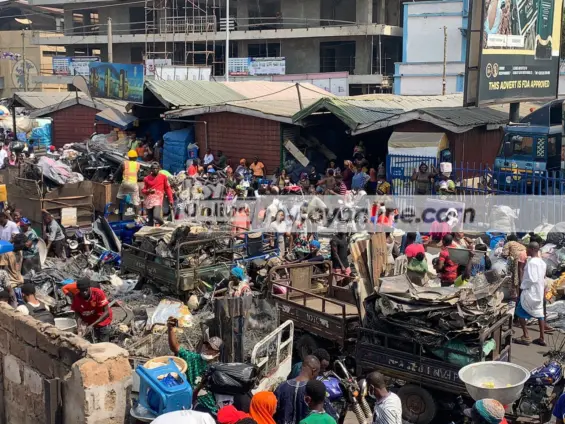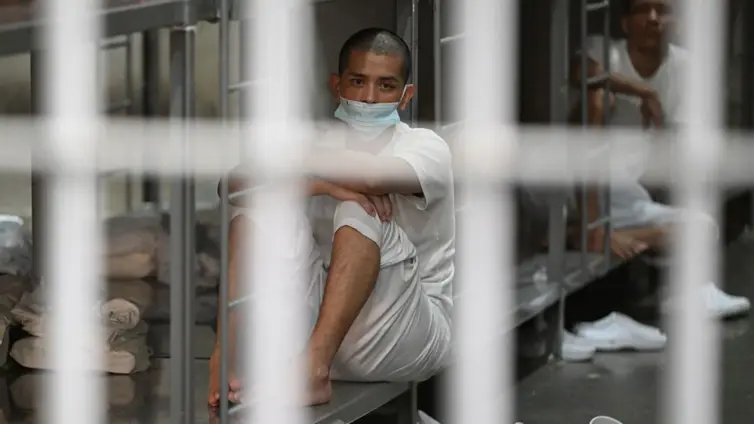For many Ghanaians, the rising cost of living and the fluctuating value of the cedi are daily realities. As the nation navigates these economic straits under a new administration, the spotlight is on measures designed to alleviate the pressure. Isaac Adongo, a Bank of Ghana Board Member and the Member of Parliament for Bolga Central, has been a vocal commentator on these policies, offering his perspective on their potential impact.
Speaking recently on JoyNews’ PM Express, Adongo articulated his belief that the recent policy measures enacted by the central bank and the Finance Ministry are geared towards providing immediate relief to Ghanaians, specifically addressing the prevailing economic pressures and working towards stabilizing the cedi. The challenges Ghanaians are experiencing have had a catastrophic knock-on effect as we have seen with the Kantamanto Market fire. The fire has left many traders and their families without their livelihoods.
Understanding the Cedi Relief Measures
What are the Specific Policy Interventions?
Adongo emphasized the coordinated effort between the central bank and the Finance Ministry, describing it as a complementary approach where both institutions are playing their respective roles in the economic recovery process. This coordinated effort is what Adongo describes as being the key to seeing change in the current challenges.
He characterized the measures as an initial step. In his words, “This is an initial remedy to give Ghanaians some relief, whilst the fruit that we really want to bear is to tackle food inflation head-on.”
Immediate Relief vs. Long-Term Solutions
Adongo is keen to stress that the measures are an ‘initial remedy.’ He emphasizes that these are not silver bullets, instead are part of a broader and more sustained strategy. The ultimate goal, as he stated, is to confront food inflation directly, which he sees as a critical factor in achieving lasting economic stability for Ghanaians.
Adongo’s Response to Cedi “Arrest” Claims
Addressing the “Arrested” Cedi Narrative
In the past, former Vice President Bawumia had claimed to have ‘arrested’ the cedi, a statement that has since been widely debated and scrutinized. Adongo addressed this claim with a touch of sarcasm, offering an alternative perspective on the cedi’s current situation.
“No, we have not arrested the cedi. The man who claimed to have arrested it is out there,” Adongo stated, highlighting the change in administration. “What is happening to the cedi now is that we are gradually massaging it to find its true level.”
The Current Approach: Gradual Stabilization
Adongo suggests that the current strategy involves a more measured and gradual approach to allowing the cedi to find its true value in the market. This contrasts with the previous administration’s claims of a swift and decisive intervention. He indicates this more gradual approach is a more sustainable method of achieving lasting change. This approach of managing the cedi is to restore the level that supports the Ghanaian economy.
Restoring Credibility and Market Confidence
Signalling a New Era of Economic Management
Adongo argues that the current administration is focused on restoring credibility in economic management and signalling to market players that a new approach is being taken. His perspective is that the previous era of economic mismanagement is over.
He conveyed this sentiment with a direct message: “We are trying to let them know: ‘Hey, we are in Ghana now. Akufo-Addo is gone. Bawumia is gone. It is now Ato Forson and John Mahama. If you misbehave, we’ll deal with you.’ And they are beginning to say, ‘yes sir, yes sir.’ That’s what we are doing.”
Managing Expectations for Cedi Recovery
Adongo cautioned against unrealistic expectations of a dramatic and immediate appreciation of the cedi. Instead, he emphasized the importance of stability and predictability over a sudden surge in value, the sustainability of which would be questionable at best.
“What we are looking for is stability, not a quantum jump of the cedi from 15 cedis to 3 cedis,” he explained. “What we are doing now is to get the cedi to find the level that supports the economy.”
The Impact on the Kantamanto Market Fire
Correlation Between Market Fire and Economic Instability
Economic instability often exacerbates vulnerabilities, and events like the Kantamanto Market fire highlight the devastating consequences when livelihoods are disrupted. The loss of goods and businesses in the fire intensifies economic hardship for traders and their families, while also potentially contributing to food inflation due to supply chain disruptions and the subsequent pressure on the cedi.
In summary, Isaac Adongo frames the recent cedi relief measures as an initial step towards achieving stability and predictability for the Ghanaian economy. His key points revolve around the idea of an ‘initial remedy,’ a strategy of gradual stabilization, the importance of restoring credibility, and the need to manage expectations realistically. He underlines that the overarching goal is to guide the cedi towards a level that sustainably supports the broader economic landscape, preventing incidents such as the Kantamanto Market fire from having catastrophic impacts on the economy.
Image Source: MYJOYONLINE





















